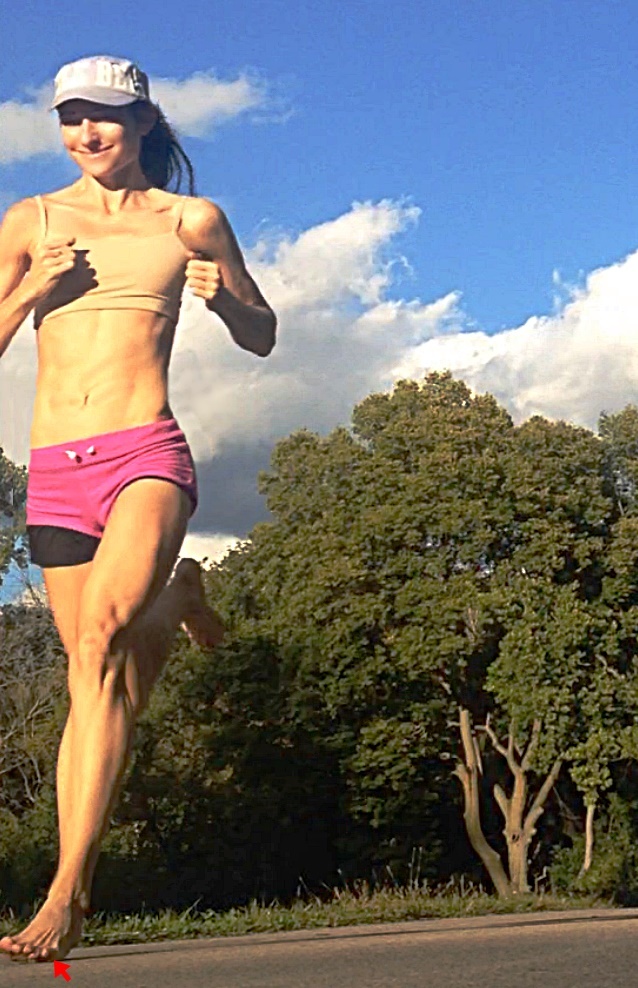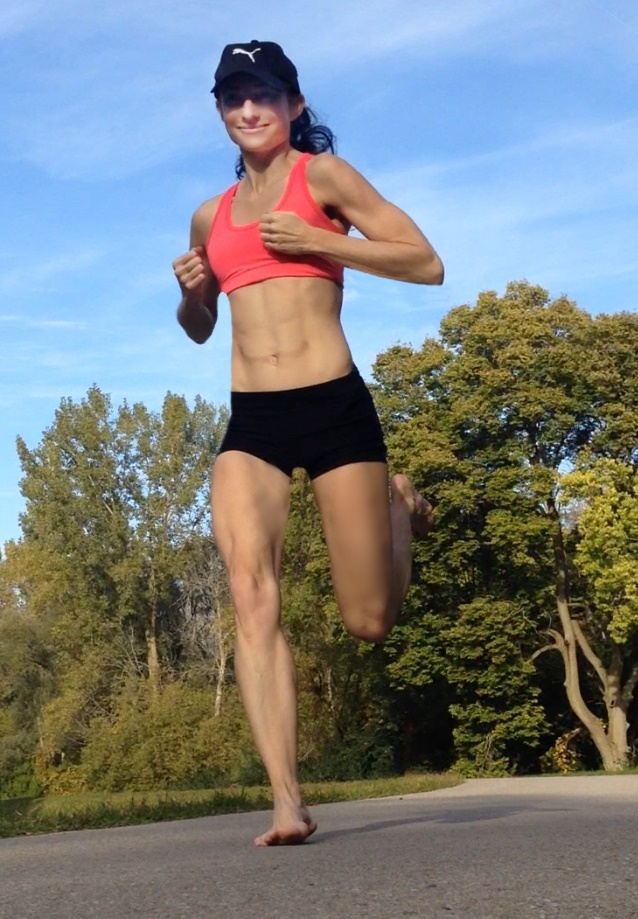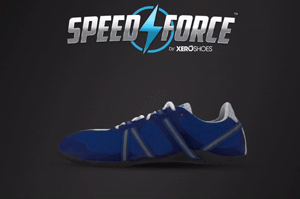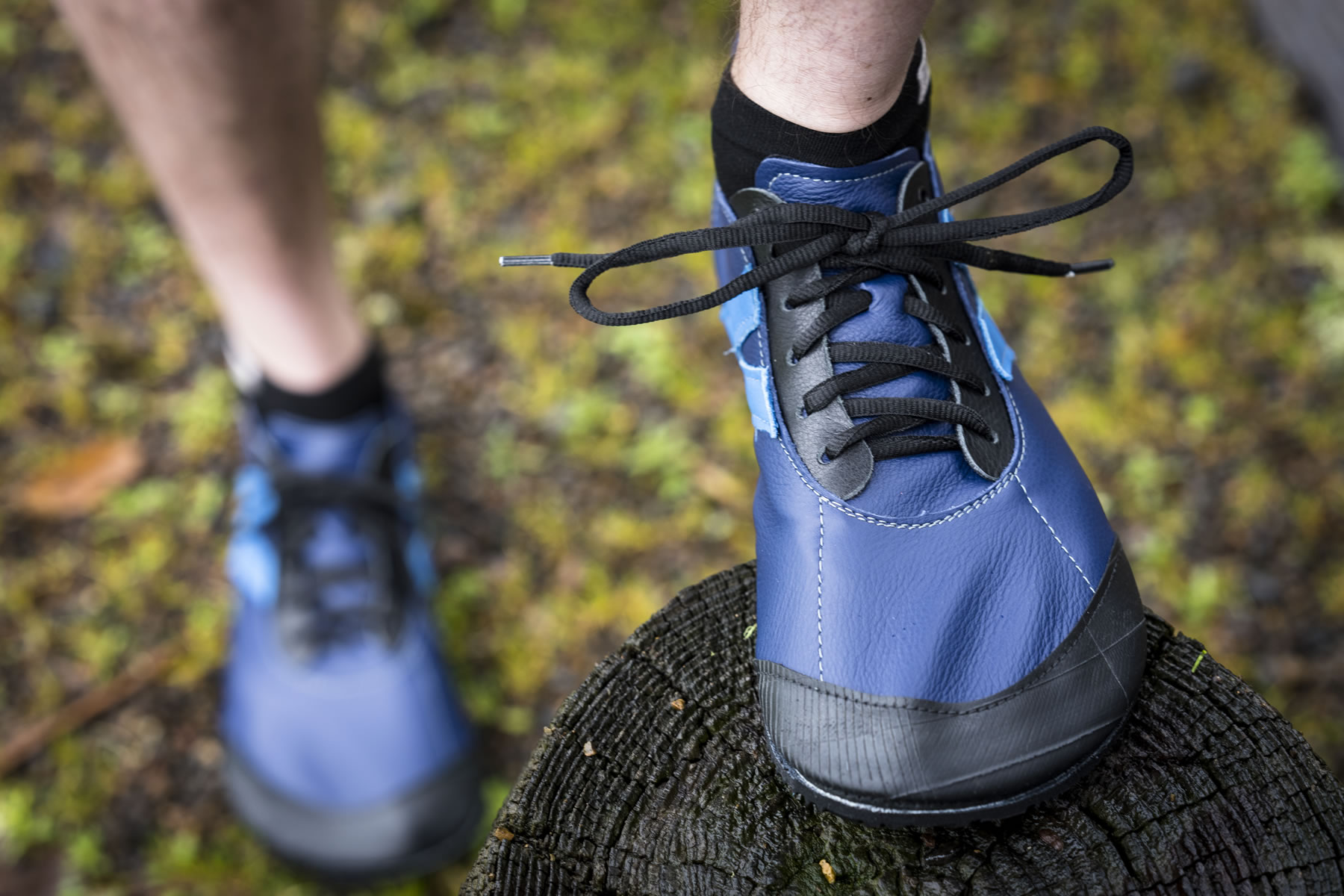The IT band (which is a long stretch of connective tissue that runs along the outside of the leg from the hip to the knee and shinbone) is a common site of injury in runners. One risk factor for the condition is foot strike pattern, namely heel striking.
Most relevant, landing with a forefoot strike does a better job at preventing IT band injury than heel strike running by relieving excessive vertical impacts, tensile stress, bending strain and higher rates of loading off the IT band.


A growing body of evidence shows a shorter stride length coupled with a wider step-width (the distance in width between both feet at each step) safeguards the IT band from mechanical overloads, but of significance, both of these mechanical outputs are engaged most optimally in forefoot running, but are impeded in heel strike running.

For instance, a 2015 study published in the American Journal of Sports Medicine found that heel strike runners shortened their stride length by 2% when they switched to forefoot running, but it was the increased stance-width, engaged by forefoot running, in addition to reduced stride length that made the most positive difference in preventing injurious IT band strain.
How does forefoot running naturally engage a wider stance and shorter stride length as compared with heel strike running?
When you land on the front part of your foot (forefoot) when you run, the foot physically doesn’t have enough time to swing out all the way through and around the stance limb, which is why stride length becomes reduced. There’s also less time for the foot to swing out all the way in front of the body and across the mid-line, rather the foot lands away from the mid-line while landing closer to your center of mass, resulting in a wider stance, not crossover footsteps (i.e footsteps that cross the mid-line, which is a major risk factor for IT band pain).


If you’re struggling with IT band syndrome (symptoms include sharp outer knee pain or pain that shoots up and down your leg when you run), make sure you’re not landing with a heel strike, and instead, adopt the forefoot running technique as we’re quickly gaining a better scientific understanding as to how landing forefooted when running cleans up important aspects of your stride in ways that ensures your leg swing and foot strike stay in safer range.
To help you get started on learning forefoot strike running, here are 2 video’s I put together showing a proper forefoot strike landing:

If you’ve enjoyed this content, you’ll love my content over at my YouTube channel, here, where I talk more in detail about hot-button debate, forefoot strike vs heel strike running as well as the health and performance benefits of adding barefoot running into your training!
P.S. Don’t forget to check out my Run Forefoot Facebook page here! It’s a terrific place to ask questions about forefoot running, barefoot running and injury. I’m always happy to help!
References:
Derrick TR, Caldwell GE, Hamill J. Modeling the stiffness character-
istics of the human body while running with various stride lengths.
J Appl Biomech. 2000;16:36-51.
Derrick TR, Hamill J, Caldwell GE. Energy absorption of impacts dur-
ing running at various stride lengths. Med Sci Sports Exerc.
1998;30(1):128-135.
Edwards WB, Taylor D, Rudolphi TJ, Gillette JC, Derrick TR. Effects
of stride length and running mileage on a probabilistic stress fracture
model. Med Sci Sports Exerc. 2009;41(12):2177-2184.
Heiderscheit BC, Chumanov ES, Michalski MP, Wille CM, Ryan MB.
Effects of step rate manipulation on joint mechanics during running.
Med Sci Sports Exerc. 2011;43(2):296-302.
Lenhart RL, Thelen DG, Wille CM, Chumanov ES, Heiderscheit BC.
Increasing running step rate reduces patellofemoral joint forces.
Med Sci Sports Exerc. 2014;46(3):557-564.
If you’d like, you can show support and help keep Run Forefoot going by making a donation in any amount of your choosing:

Or, you can also support Run Forefoot by shopping at the following top minimalist shoes brands, and be sure to bookmark the links:
Vivobarefoot: https://shrsl.com/3kvih
Be Lenka: https://www.dpbolvw.net/click-7600968-14330828
FeelGrounds: https://www.feelgrounds.com/?p=RunForefoot
Xero Shoes: https://xeroshoes.com/go/Run_Forefoot
Iguaneye: https://www.iguaneye.com/?ref=8tfXVc92
Soft Star Shoes: https://shrsl.com/3mp1b
Wilding Shoes: https://bit.ly/3lIygQP
Zappos: https://goo.gl/J1CeAd

Bretta Riches
BSc Neurobiology; MSc Biomechanics candidate, ultra minimalist runner & founder of RunForefoot. I was a heel striker, always injured. I was inspired by the great Tirunesh Dibaba to try forefoot running. Now, I'm injury free. This is why I launched Run Forefoot, to advocate the health & performance benefits of forefoot running and to raise awareness on the dangers of heel striking, because the world needs to know.
Latest posts by Bretta Riches (see all)
- Can You Run In Barefoot Shoes? Yes, But DON’T Heel Strike! - 21/07/2024
- Why Cushioned Running Shoes Are Really Bad for Your Feet - 19/07/2024
- Do Cushioned Running Shoes Cause Injuries? - 17/07/2024

